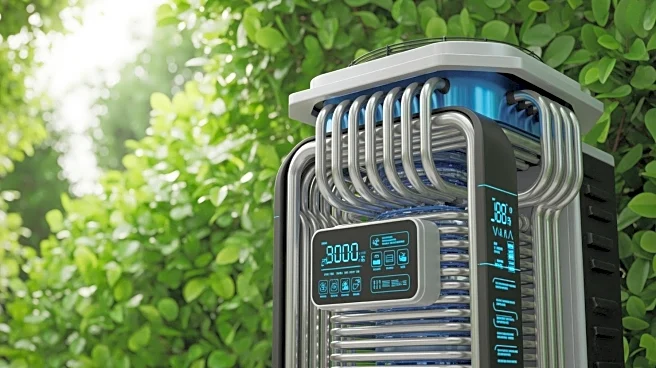What's Happening?
Michigan is experiencing a surge in interest from technology companies looking to establish data centers, which are energy-intensive facilities essential for powering digital services like artificial intelligence
and streaming. This development has prompted concerns from environmental groups and ratepayers about potential increases in electricity costs and the impact on the state's transition away from fossil fuels. DTE Energy and Consumers Energy, Michigan's major utilities, are fielding inquiries from tech companies, which could lead to significant increases in energy demand. Consumers Energy has proposed tariff changes to manage this demand, requiring data centers to commit to long-term operations and pay fees for early contract termination. Environmental groups argue these measures are insufficient to protect ratepayers and advocate for clean energy integration in data center agreements.
Why It's Important?
The expansion of data centers in Michigan could have significant implications for the state's energy landscape. If not managed properly, the increased demand for electricity could lead to higher costs for residential customers and hinder efforts to transition to clean energy. The proposed tariff changes by Consumers Energy aim to mitigate risks associated with stranded costs from data centers that fail to fulfill their energy commitments. However, environmental groups warn that without stringent requirements for clean energy use, the growth of data centers could extend reliance on fossil fuels. The outcome of this situation could set a precedent for how other states manage data center growth and its impact on energy infrastructure.
What's Next?
The Michigan Public Service Commission is reviewing Consumers Energy's proposed tariff changes, which could influence the future of data center development in the state. Stakeholders, including environmental groups, consumer advocates, and data center industry representatives, are actively participating in the proceedings. The commission's decision will likely affect how utilities across Michigan and potentially other states approach data center agreements. DTE Energy is also monitoring developments and may adjust its strategies based on the commission's ruling. The ongoing discussions highlight the need for careful planning to balance economic growth with environmental sustainability.
Beyond the Headlines
The rapid development of data centers raises broader questions about resource management, particularly water usage for cooling systems. Large data centers can consume significant amounts of water, potentially affecting local water supplies and ecosystems. The Alliance for the Great Lakes has recommended studies to assess water demand and ensure sustainable practices. Additionally, the economic incentives for data centers, such as tax exemptions, could influence their location decisions, impacting local economies and infrastructure planning. These factors underscore the complexity of integrating data centers into existing energy and environmental frameworks.











